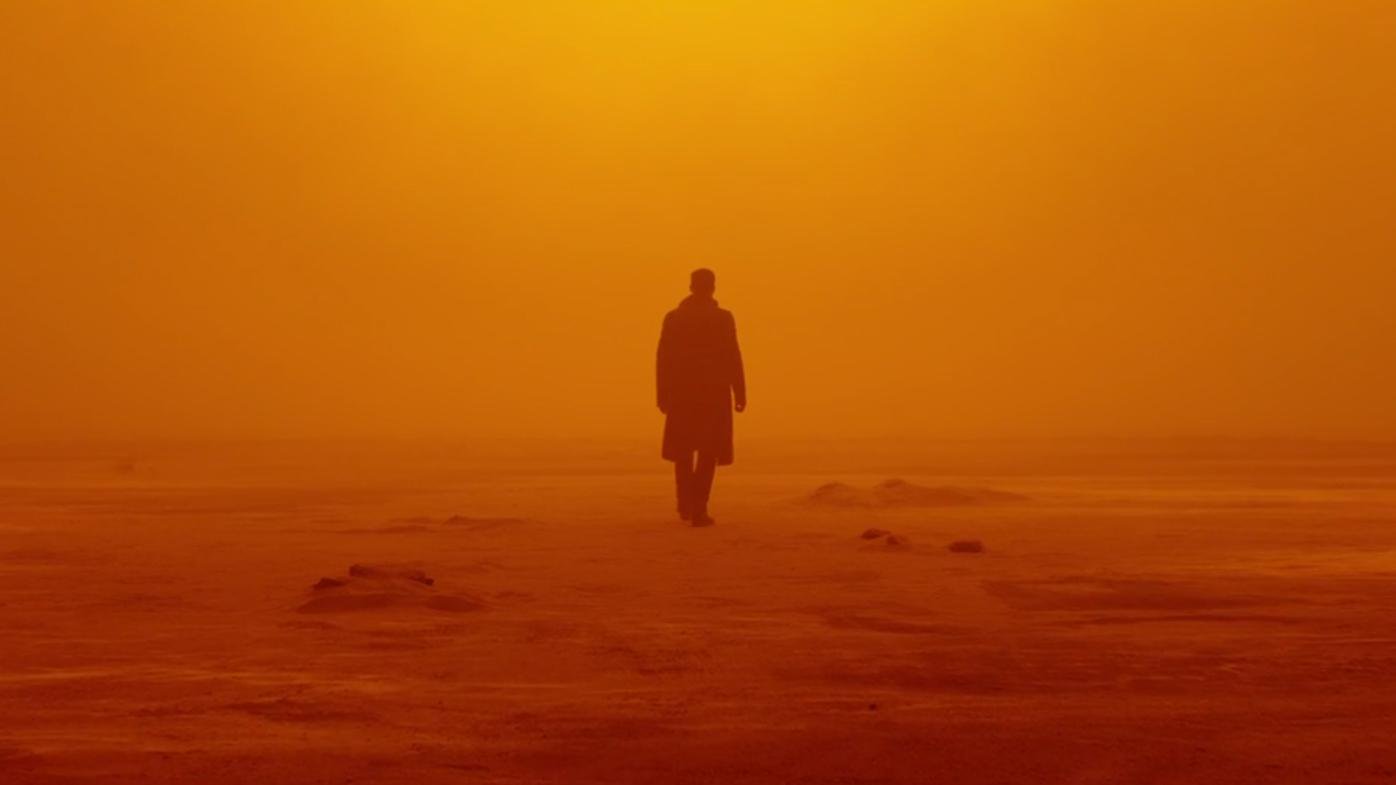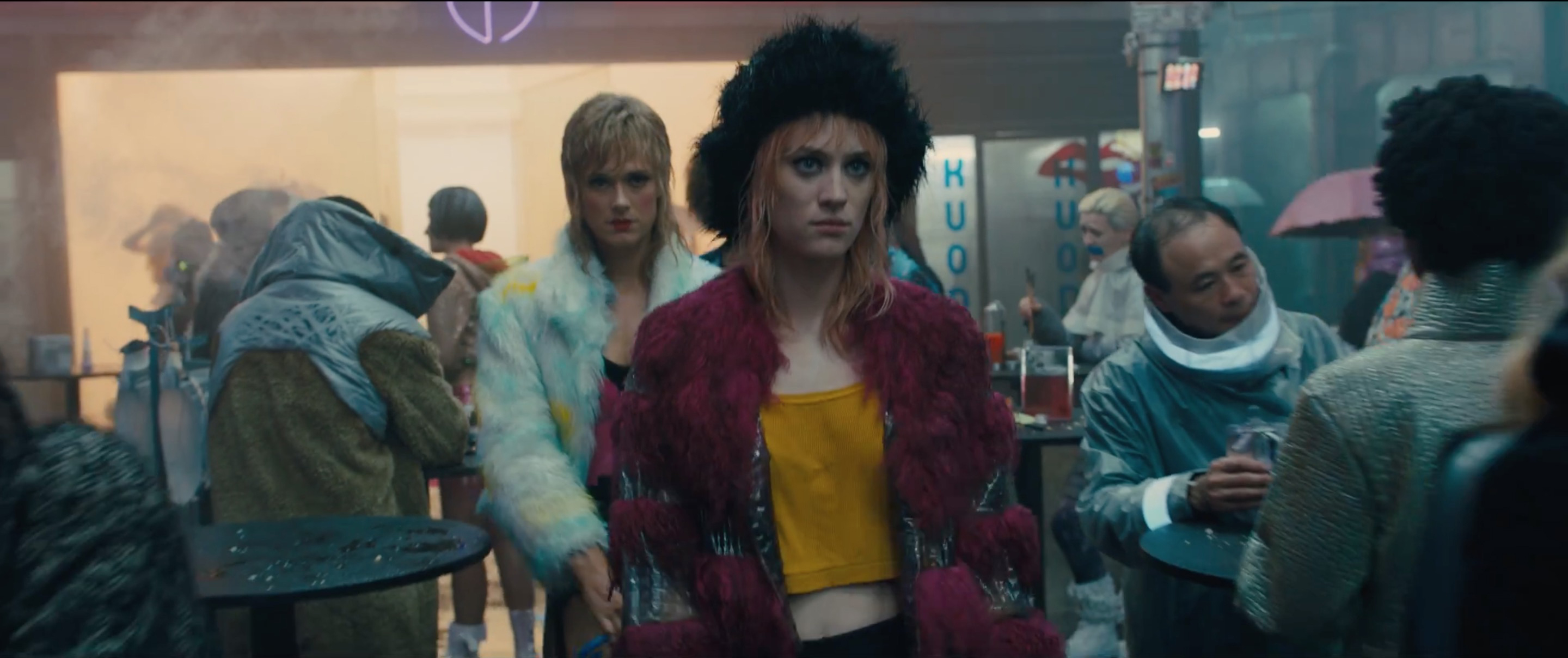We took our time but little by little we’ve overcome the reverence one must feel towards the Blade Runner universe and we dared challenge it. But, how to be objective when dealing with a cinematographic chimaera? A mission impossible, but maybe this is not the point. By plunging deep into the recesses of human nature, BR has always stimulated discussions and confrontations, breeding a whole offspring of inspiring and inspired cyberpunk epigones. Inspiration plays a key role in the following reviews, some were influenced by it, others weren’t, some declared it, others challenged it.
BLADE RUNNER 2049 – seen by Margherita Fontana
With Blade Runner 2049 Denis Villeneuve tests himself with the almost impossible task to give the masterpiece by Ridley Scott, here involved as executive producer, a worthy sequel. Once again (!) the future resides in a new generation, evident incarnation of a human-android ambiguity, and in an envisaged civil war, meant to bring to end androids’ slavery. The dystopian universe shaped by Ridley Scott in the 80’s on the back of Philip K. Dick fiction, is updated through today’s fears: the never-ending rain of the 80’s Los Angeles is accompanied by a Las Vegas turned to a desert, while in the meantime humans are forced to breed insects to respond to the famine. The ambiguity between humans and androids is declined by Villeneuve in the direction of a virtual relationship: the inevitable love story is the one between the main character, the Blade Runner android K., and Joi, a virtual product designed to satisfy his emotional needs. If the love between Deckard and Racheal, between the biological and bionic, has led to a miracle, the one between K. and Joi remains a fruitless substitute, an egotistic solace in a life of solitude. Villeneuve plays with the device created by Ridley Scott looking for new combinations and overturned quotations: the result is a film sometimes slow (a half an hour less wouldn’t have been bad) with some interesting inputs, but not comparable to its source. Not for nothing it was an impossible task.
BLADE RUNNER 2049 – seen by Yorgos Kostianis
For sci-fi aficionados like yours truly, Ridley Scott’s 1982 neo-noir juggernaut, Blade Runner, is nothing short of a veritable “bible”. Based on Philip K. Dick’s riveting 1968 novel “Do Androids Dream of Electric Sheep”, this cryptic cyberpunk vision introduced a whole generation to an immersive, futuristic dystopia, laden with philosophical musings about what it means to be human. Therefore, the task of continuing such a towering legacy is indubitably a heavy burden. One that Denis Villeneuve (“Arrival”, “Sicario”, “Incendies”) shoulders with great grace and reverence, delivering a filmic paean to its predecessor.
Riding a wave of gorgeous visuals from legendary cinematographer Roger Deakins, Villeneuve brings us back to a murky and derelict Los Angeles, 30 years after the previous instalment. Enter Agent K (Ryan Gosling), a forlorn Nexus-9 replicant cop tasked by the LAPD with “retiring” his unruly and outdated fellow androids. During his latest replicant hunt, he stumbles across a trail of breadcrumbs towards the unearthing of a long-buried secret and into a collision course with the narrative of the original film. While the film somewhat lacks the inimitable, magniloquence and noir undertones of its predecessor, it compensates with ambitious new subplots filled with existential conundrums that eerily echo Spike Jonze’s Her. Unlike a lot of reboots, Villeneuve shrewdly plants callbacks to the previous film that are not only tasteful but also aspire to enrich and expand the universe’s mythology.
Nevertheless, one sector that the film fails to live up to the original is the soundtrack. Compared to Vangelis’ magisterial compositions, Zimmer’s sound mix of deafening metallic groans and eldritch screeches is quite a meagre compensation. Regretfully, “2049” loses traction in its second half. Instead of solid build-up, it features a nostalgic, albeit little more than ornamental performance by Ford and a dreadfully desultory and besmirching rough approximation of Sean Young’s iconic Rachael; tumbling down towards a sloppily streamlined ending(?).
Yet, all things considered, Villeneuve deserves his fair share of praise for undertaking, and arguably accomplishing, such a herculean task. Even if he done fucked up them badass 2019’s lightsaber umbrellas.
BLADE RUNNER 2049 – seen by Carlotta Magistris
Full of expectations as only the sequel of the iconic Blade Runner can be, Denis Villeneuve – acclaimed director of the so-called engaged sci-fi – after 35 years confronts Ridley Scott’s masterpiece involving all the masterminds required by such a titanic act. With him in this epic confrontation we find one of the two original screenwriters, Hampton Fancher, an overall (declared) budget of more than 185 million dollars and an all-star cast: the raised-eyebrow contemporary icon Ryan Gosling, the “stainless” Harrison Ford and Jared Letho, once again a most interesting actor. What comes out is inevitably good and nothing seems out of place: from the powerful soundtrack to the impressive locations that greatly benefit from digital techniques unimaginable 30 years ago, to the ethic and philosophical thoughts on man’s nature that come back, without being banalized, reissued by a director that still has much to say. We can wonder if operations like this are functional for (his) cinematographic progress or are merely designed to stir nostalgic sighs and to bring back to the cinema the most affectionate and to raise curiosity in neophytes for a movie designed not to be forgotten.
BLADE RUNNER 2049 – seen by Elena Saltarelli
This film, directed by Denis Villeneuve, can be defined as the sequel par excellence; this means, unfortunately, strong and pitiless comparisons. Indeed, comparing it with the original cult, it comes out defeated, for obvious reasons: the authorial gaps, the photographic cut maybe too tightly packed and the ruthless comparison between an amorphous Gosling and none other than Harrison Ford. But, if I think instinctively, and I let myself carried away by an extemporaneous feeling, what BR 2049 gave me back was the sensation of being part of something big. Yes, because big, or rather, majestic, is Roger Deakins’ photography (already appreciated in masterpieces like No Country for Old Men, or Fargo): the transposition of a universe that respects the original version, and overcomes it giving us atmospheres that alone are worth the entire film. Desert visions of a compromised humanity, extremely cerebral visual stimuli and scenes (like the one in which Gosling and Ford punch each other between the glitched images of a decadent and futuristic Las Vegas, placed into the off-world) that transcend the science fiction to go into the delicate area of the dystopian introspection, moving us deeply through the image, supported by the impeccable soundtrack of the almost consecrated Hans Zimmer. Following this analysis and leaving the cult claim that the film tries to maintain throughout its duration, it doesn’t matter if the story begins with Agent K that casually notices a flower on the ground, or if Wallace has the same dialogic thickness of the palm reader that works nearby the station: I’ve lost myself into that world. Once again.









Commenti recenti